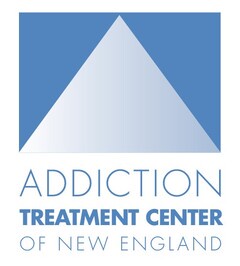The opioid epidemic has ravaged communities across the United States, particularly in states like Massachusetts where drug overdose rates have reached alarming levels. As policymakers and healthcare professionals scramble to find effective strategies to combat this crisis, the role of methadone clinics has emerged as an essential component in providing treatment and support to individuals battling with addiction. This blog post will delve into the significance of methadone clinics specifically within the context of Massachusetts, highlighting their positive impact and exploring why they are a necessary tool in addressing the opioid epidemic.
Methadone clinics have proven to be highly effective in reducing substance abuse and improving overall health outcomes among opioid-dependent individuals. Often referred to as Medication-Assisted Treatment (MAT), these clinics offer a combination of medication (methadone), counseling, and comprehensive support services tailored to address both the physical and psychological aspects of addiction.
Located across Massachusetts, methadone clinics serve as a vital resource for those seeking help by providing a safe and supportive environment where patients can access treatment on a regular basis. This accessibility factor ensures continuity of care which is critical for managing addiction in the long run. Research studies indicate that MAT programs involving methadone have significantly lowered overdose-related mortality rates when compared to abstinence-based approaches alone.
Moreover, methadone clinics play a pivotal role in reducing HIV/AIDS and Hepatitis C transmission rates, especially through intravenous drug use. The medication's long-acting properties effectively curb opioid cravings while minimizing withdrawal symptoms, thereby diminishing the urge for individuals to resort to risky injection practices which contribute to spreading blood-borne diseases. Massachusetts policy makers recognize this public health benefit and have prioritized opening additional methadone clinics as part of their harm reduction strategy.
Critics argue that substitution treatments such as methadone simply replace one addiction with another; however, this viewpoint misrepresents the nature of MAT programs. The aim here is not to perpetuate dependency indefinitely but rather to stabilize patients’ lives by providing a pharmacological foundation that suppresses withdrawal symptoms—thus enabling them to focus on rebuilding their personal circumstances, improving health outcomes, and addressing underlying issues that led to substance misuse initially.
Methadone clinics are critical assets within Massachusetts’ fight against opioid addiction. As demonstrated, they offer evidence-based care that leads to improved health outcomes, reduced mortality rates, and lower transmission risk factors associated with injection drug use. Recognizing the positive impact of these facilities, state policymakers should continue allocating necessary resources towards expanding access geographically while simultaneously ensuring quality standards through regulatory oversight mechanisms.
By adopting a comprehensive approach that combines medication-assisted treatment modalities like methadone with counseling support services, we can pave a path towards recovery for countless individuals affected by opioid dependency—fostering healthier communities in the process.
Methadone Clinics: A Solution to the Opioid Epidemic in Massachusetts

3 min read
03 October 2023
In case you have found a mistake in the text, please send a message to the author by selecting the mistake and pressing Ctrl-Enter.

No comments yet